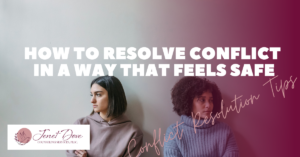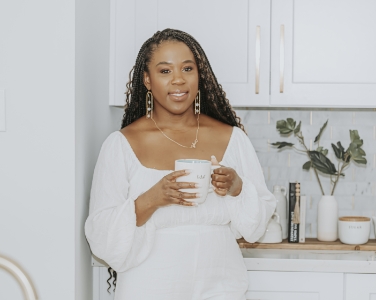
We’ve all experienced conflict at some point in our lives. From navigating a roommate who can’t seem to wash the dishes to a family member who can’t seem to respect your boundaries, conflict is an inevitable part of all of our lives. But with the right tools and strategies, there are ways to get to the other side of it in a way that feels safe. And no matter how hard it may seem, we can even use the conflict to strengthen our relationships with others and understand ourselves.
I believe that conflict resolution is a crucial part of any healthy relationship, whether it be personal or professional, and.that’s why in this article, I will discuss essential conflict resolution skills. As you read, it is important to remember that conflict does not have to be a negative experience and can be used as an opportunity for growth. So with that being said, let’s explore what it means to approach conflict with openness and courage instead of hostility or aggression.
How to Resolve Conflict – The Fundamentals
Understanding the Root Cause of Conflict
To resolve a conflict, it is important to take a minute to pause and pinpoint its underlying cause. Instead of going full speed ahead into the conflict, pausing for a moment of reflection will enable you to identify the fundamental issues that have resulted in the conflict in the first place.
Here is a real life example: John has observed that Sarah has been avoiding him for the past few days without any apparent reason. He attempted to talk to her, but she appeared disengaged and uninterested. John decided to take a step back and reflect on what might have caused this. He then realized that he had unintentionally made a joke earlier that could’ve been offensive to Sarah, and that was the reason for her distant behavior. With the clarity he gained from taking a moment to reflect, John approached Sarah and apologized for his insensitive remark, and they were eventually able to resolve the conflict and move forward.
Using “I” Statement
Using “I” statements is a crucial aspect of effective communication in conflict resolution. It allows individuals to express their feelings and opinions without blaming or attacking the other person.
For example, instead of saying, “You always interrupt me when I talk,” an “I” statement would be, “I feel frustrated when I’m interrupted when trying to speak.” This approach helps both parties understand each other better and find a resolution to the conflict more effectively.
Finding Common Ground
Finding common ground is the key to resolving conflicts. It involves identifying the areas of agreement and working towards a solution that benefits everyone involved. By finding common ground, you can build trust and create a more positive relationship.
A simple example of finding common ground in resolving conflicts is when two coworkers have different ideas on how to approach a project. Instead of arguing and dismissing each other’s ideas, they take the time to listen and identify the areas where their ideas overlap. Now they can work together to come up with a solution that incorporates both of their ideas, creating a better and more effective outcome for the project.
Finding common ground is a great strategy to use in professional environments because it helps to build trust and a more positive working relationship between coworkers and collaborators.
Negotiation and Compromise
Remember that it takes more than one person to establish a healthy relationship. That’s why it is important to find solutions that are acceptable to both parties. Finding a solution that satisfies the needs of everyone involved and exploring various options organically with others can help with this. When you negotiate in relationships, remember that it is important to be flexible and open-minded during the process and to stand firm in your decision once an agreement is eventually made.
Managing Emotions
Managing emotions is a critical component of conflict resolution. This primarily looks like remaining calm to avoid an impulsive reaction when disagreements arise. Remember to breathe. Emotions can cloud our judgment and make it difficult to find a resolution.
By learning how to manage our emotions, you can stay focused on finding a solution that benefits everyone involved. Whether it be a partner, a coworker, or a roommate, when you learn to manage your emotions, you can always navigate conflict in safe and productive ways.
Healthy and Unhealthy Ways to Resolve Conflict
To summarize this further, let’s compare healthy and unhealthy ways to resolve conflict below:
| Healthy Ways to Resolve Conflict | Unhealthy Ways to Resolve Conflict |
| Identify and understand the root cause of conflict | Ignore or deny the problem |
| Use “I” statements to express feelings and opinions | Use “you” statements to blame or attack the other person |
| Find common ground and work towards a solution that benefits everyone | Do anything to get your way |
| Manage emotions to stay calm and focused | Engage in activities that are harmful to yourself or others |
| Negotiate and compromise to find an acceptable solution | Standing firm and showing unwillingness to compromise when it’s reasonable to do so |
Conclusion
Conflict resolution is a crucial skill in any healthy relationship. By understanding the root cause of conflict, communicating effectively, actively listening, finding common ground, negotiating and compromising, and managing emotions, you can resolve conflicts effectively and efficiently. These skills are essential for anyone looking to build positive relationships, whether in their personal or professional lives.
But at the end of the day, remember, no one is perfect! May we all strive to become better listeners and communicators and may our relationships be strengthened by the beauty of genuine understanding.
I wish you the best of luck in your journey toward conflict resolution! If it ever begins to feel overwhelming and you need more support with this, don’t hesitate to reach out for a consultation. Together, we can develop strategies to overcome conflict in ways that feel safe and support you in rebuilding your relationships for the better.
Schedule A Free 20 Minute Consultation







